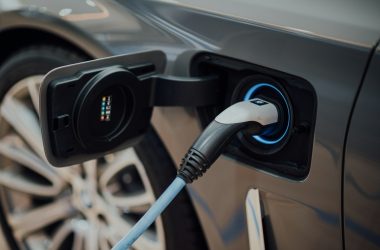As the calendar flips from one year to the next, it’s a period often marked by contemplation and forward-looking anticipation. January, named after the dual-faced Roman deity Janus, symbolises this transition, prompting us to review the past and peer into the future. This reflective period is especially poignant for the electric vehicle (EV) sector, particularly in examining the advancements and transformations within electric car charging infrastructure over the past year and what lies ahead in 2024.
2023: A Year of Monumental Growth in EV Charging
The landscape of electric vehicle charging in the UK witnessed remarkable growth and pivotal developments throughout 2023. Among these, the expansion of high-powered charging hubs stood out, a trend that not only persisted but gained momentum from the previous year. By the close of November 2023, the UK boasted 239 open-access charging hubs, a notable leap from the 99 hubs recorded at the end of November 2022. Osprey’s Salmons Leap and bp pulse’s Birmingham gigahub exemplify this surge, showcasing the push towards accommodating rapid and ultra-rapid charging needs.
Parallel to the growth of charging hubs was the accelerated pace of charge point installations. The year saw the average monthly installations climb to 1,400, marking a substantial 75% increase from 2022’s figures. This expansion led to the UK crossing the milestone of 50,000 public charging points in October and, by early December, surpassing 10,000 rapid and ultra-rapid charging stations across 5,000 locations—a testament to the evolving infrastructure catering to the needs of EV drivers undertaking longer journeys.
Legislative Leaps Forward
2023 was also a year that saw significant legislative advances aimed at enhancing the EV charging experience. The Public Charge Point Regulations (PCPR), effective from November 24th, aimed at improving reliability and ease of use through price transparency, mandatory payment roaming, and ensuring a 99% reliability rate across the rapid charging network.
Moreover, the government’s commitment to a greener future remained unwavering with the passage of the zero-emission vehicles (ZEV) mandate. Despite postponing the ban on new diesel and petrol cars to 2035, the mandate’s 2024 introduction maintains ambitious targets for the adoption of battery-electric vehicles, promising a diversified and increased availability of electric models on the market.
2024: Shaping the Future of EV Charging
The momentum from 2023 sets the stage for an even more electrified 2024, with expectations for EV ownership and infrastructure development reaching new heights. Predictions estimate around 500,000 new pure-electric cars will hit the UK roads, driven by the ZEV mandate and likely spurred by manufacturer promotions and potential governmental incentives. This growth will not only increase the number of EVs but also expand the demographic of electric vehicle owners, accommodating those with different needs and preferences.
Investment and Infrastructure Expansion
With over £6 billion committed to enhancing the UK’s public charging infrastructure by 2030, the upcoming year promises significant strides in accessibility and quality of charging solutions. This investment, coupled with the continued rate of installation seen in 2023, hints at a rapidly expanding network capable of supporting the growing number of EV drivers.
Towards a More Reliable and Accessible Charging Experience
The improved reliability of chargers and the expansion of the UK’s charging infrastructure are critical in making EV ownership more appealing and feasible. The introduction of PCPR and the expected advancements in charger reliability aim to significantly enhance the charging experience, addressing one of the crucial concerns of EV drivers.
Pricing Trends and User Experience
While the increase in charging prices moderated in 2023, the drive towards improving the overall charging experience remains paramount. Innovations and improvements by charge point operators and other stakeholders are crucial in ensuring that the physical and logistical aspects of charging continue to evolve to meet user expectations.
A Bright Electric Future
The trajectory for EV charging in the UK, shaped by the developments of 2023 and the anticipated advancements in 2024, heralds a transformative era for electric mobility. With legislative support, significant investments, and a focus on infrastructure and user experience, the EV sector is poised for unprecedented growth and improvements, making the electric dream more accessible and enjoyable for all. As we look ahead, it’s clear that the journey towards electrification is not just continuing; it’s accelerating, promising a brighter, cleaner future for mobility in the UK.










